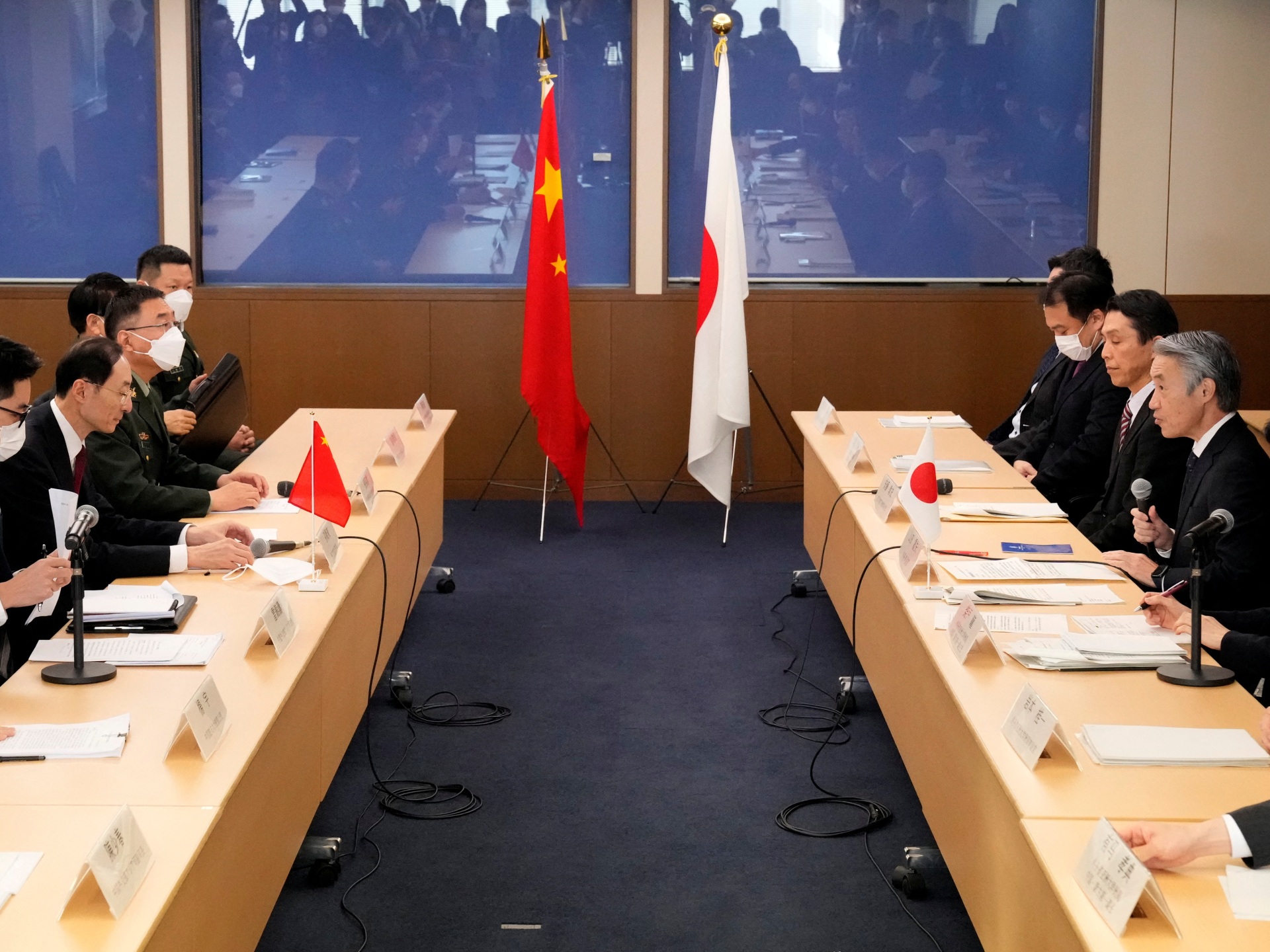China and Japan have kicked off their first formal security talks in four years, with Chinese officials expressing concern over Tokyo’s military buildup and Japanese diplomats taking aim at Beijing’s close ties with Russia and its suspected use of surveillance balloons.
The talks, aimed at easing tensions, began in the Japanese capital on Wednesday.
They come amid Japan’s worries that China may resort to force to take control of Taiwan in the wake of Russia’s attack on Ukraine – a move that could lead to a wider conflict embroiling Tokyo and the United States, and disrupt global trade.
Japan in December said it would double defence spending over the next five years to 2 percent of gross domestic product (GDP) – a total of $320bn – to deter China from resorting to military action. Tokyo also plans to acquire longer-range missiles that could strike mainland China and stock up on other munitions necessary to sustain a conflict alongside the large force from the US that Japan hosts.
Beijing, which increased defence spending by 7.1 percent last year, spends more than four times as much as Japan on its armed forces.
At the outset of Wednesday’s talks, Chinese vice foreign minister Sun Weidong expressed concern over Japan’s changing security posture.
“The international security situation has undergone vast changes and we are seeing the return of unilateralism, protectionism, and a Cold War mentality,” the vice minister said at the start of the meeting.
He also warned against Japan’s “negative moves” with regard to Taiwan, “in collusion with powers outside the region”.
For his part, Japanese deputy foreign minister Shigeo Yamada highlighted concerns over the two neighbours’ territorial dispute over uninhabited islands in the East China Sea known as the Senkaku in Japan and the Diaoyu in China.
He also raised issues with Beijing’s recent joint military drills with Russia and the suspected Chinese surveillance balloons spotted over Japan’s skies at least three times since 2019.
“While relations between Japan and China have a lot of possibilities, we are also facing many issues and concerns,” Yamada told Sun.
China has denied the Japanese claims regarding spy balloons, calling them “groundless”.
The Japanese allegations follow similar claims by the US, which shot down a suspected Chinese surveillance balloon last month.
Japan said last week that it planned to clarify military engagement rules to allow its jet fighters to shoot down unmanned aircraft that violate its airspace.
The last security dialogue between China and Japan took place in Beijing in February 2019.
